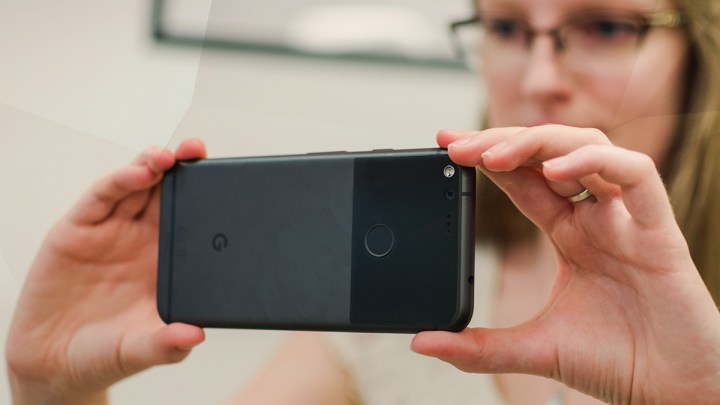
Each smartphone’s built-in front-facing camera has a unique serial number, which means that apps could potentially use this number to track and identify individual phones. Since the serial number is unique for each phone, the data could present a security and privacy issue, according to a post on the Android Open Source Project (AOSP). Third-party apps could potentially use the serial number, stored in the phone’s system, to accurately track — and advertise to — individual users.
Google has already identified the issue and is already using software to block apps from accessing the camera’s serial number. While the patch has already been written and tested, it’s unclear when the security fix will be available for download.
Alex Klyubin, a senior software engineer at Google, wrote on the AOSP website that the camera’s serial number is stored in the system. The fix, he writes, makes that serial number still available to the smartphone’s operating system, but hides that data from any third-party apps installed on the phone.
Google typically releases security updates every month — according to Verizon, some Pixel and Pixel XL phones are expected to have access to January updates as early as Tuesday.
The first phones made by Google, both boast stellar performance and a superb camera, earning a Digital Trends Editor’s Choice. While the smartphones were highly anticipated, Google has continued to update the phones from fixing additional security issues to correcting a lens flare with software.
Editors' Recommendations
- A new Google Pixel Tablet is coming, but it’s not what you think
- Why you need to be excited about the Google Pixel 8a
- Google Pixel 8a: news, rumored price, release date, and more
- 5 phones you should buy instead of the Google Pixel 8
- Whatever you do, don’t buy the Google Pixel 7a right now

